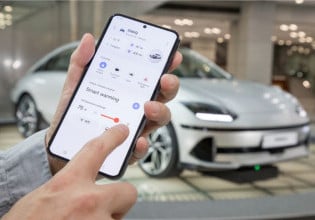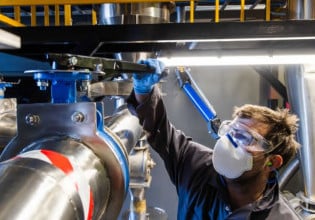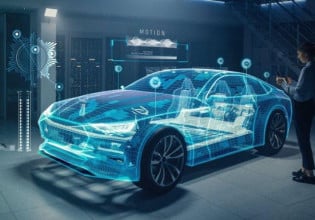IBM & Japanese Government Exhibit Different Approaches To Lithium Battery Development
Media reports reveal that IBM is beginning a research project for lithium metal-air batteries. The company will partner with Oak Ridge, Lawrence Berkeley, Lawrence Livermore, Argonne, and Pacific Northwest national laboratories. All of the parties are currently working on a proposal for funding from the U.S. Department of Energy under the Advanced Research Projects Agency-Energy.
The research intends to develop the lithium metal-air technology, which uses highly flammable lithium metal to react with oxygen in the air. The payoff, according to IBM, will be a lightweight, powerful, and rechargeable battery for the electrical grid and the electrification of transportation.
In theory, lithium metal-air batteries can store more than 5,000 watt-hours per kilogram, which is more than ten-times higher than high-performance lithium-ion batteries, and also more than fuel cells. Instead of containing a second reactant inside the cell, these batteries react with oxygen in the air that’s pulled in as needed, making them lightweight and compact.
In contrast to the IBM and US labs’ plans to explore an alternative spin on lithium battery research, in Japan, the New Energy and Industrial Technology Development Organization (NEDO) announced the outlines of a Japanese government-industry-academia project to develop next-generation batteries for use in hybrid and electric vehicles as well as homes. The project is to draw a total of 22 participants and receive roughly 21 billion yen (US$213.82 million) in funding from the government over seven years.
Its goals include a lithium ion battery able to hold three times as much power per kilogram as existing lithium ion batteries. Midsize and compact electric vehicles can currently travel just 100 and 150km, respectively, on a fully charged lithium ion battery, while a typical gasoline-powered car can go more than 500km on a full tank. The project also plans to work toward developing in 2020 or later a new type of battery that will enable electric vehicles to travel 500km without recharging.
Technologies stemming from these efforts are expected to also be used to develop batteries for use in households for such purposes as storing power generated from solar cells and wind turbines.
Participants include 12 companies: Toyota Motor Corp., Nissan Motor Co., Panasonic Corp., Sanyo Electric Co. and GS Yuasa Corp.. Kyoto University, Waseda University, Tohoku University and other schools and R&D institutes will be the other 10 members.






